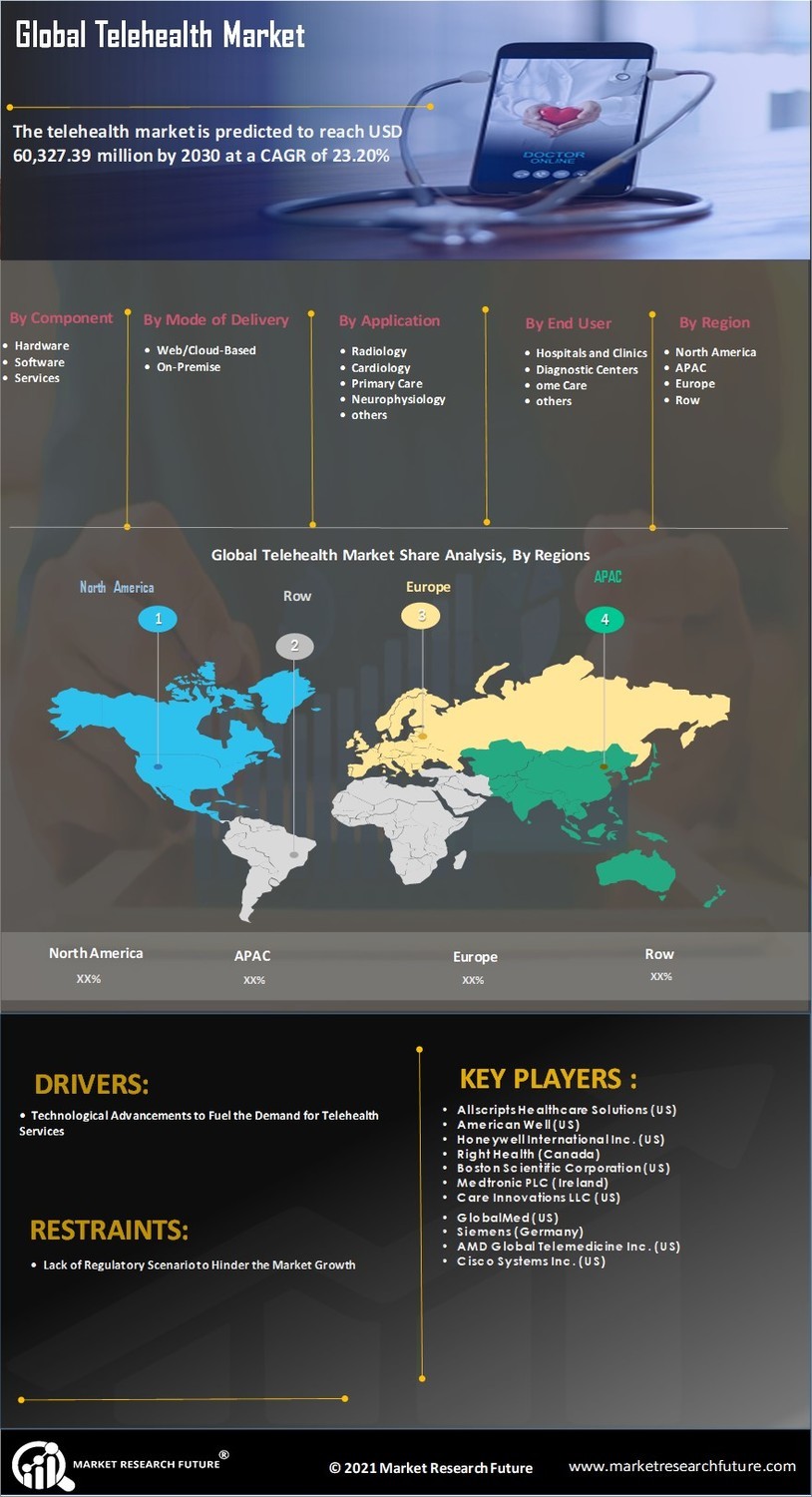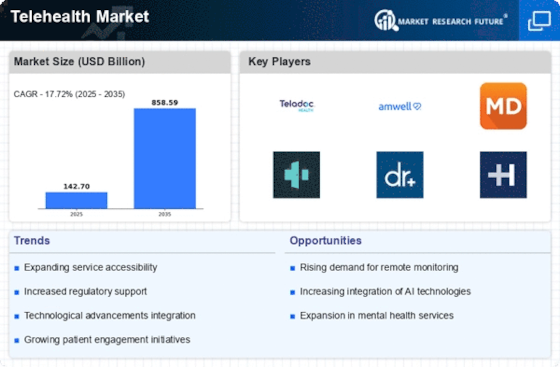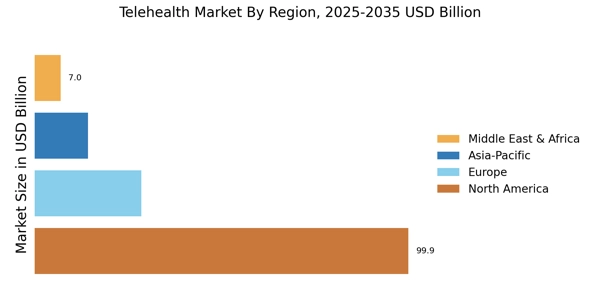Regulatory Support and Policy Changes
Regulatory support and policy changes are crucial drivers of the Telehealth Market. Governments and health organizations are increasingly recognizing the importance of telehealth in improving healthcare access and outcomes. Recent policy shifts have expanded reimbursement options for telehealth services, encouraging healthcare providers to adopt these solutions. For instance, legislation in various regions has allowed for the reimbursement of telehealth consultations at rates comparable to in-person visits. This financial incentive is likely to stimulate growth within the Telehealth Market, as more providers are motivated to offer telehealth services. Additionally, regulatory bodies are working to streamline licensure processes, making it easier for healthcare professionals to practice across state lines. Such initiatives are expected to enhance the availability of telehealth services, ultimately benefiting patients.
Growing Focus on Preventive Healthcare
The Telehealth Market is witnessing a growing focus on preventive healthcare, which is reshaping the landscape of medical services. As healthcare systems shift towards value-based care, there is an increasing emphasis on preventing diseases rather than merely treating them. Telehealth Market services, such as virtual wellness consultations and remote monitoring, enable healthcare providers to engage patients in their health proactively. Data suggests that preventive care can reduce healthcare costs by up to 30%, making it an attractive option for both patients and providers. This trend is likely to drive the adoption of telehealth solutions, as individuals seek to manage their health more effectively. Consequently, the Telehealth Market is expected to expand, aligning with the broader movement towards preventive healthcare.
Rising Demand for Accessible Healthcare
The Telehealth Market experiences a notable surge in demand for accessible healthcare services. This trend is driven by an increasing awareness of health issues and the need for timely medical consultations. Patients are seeking alternatives to traditional in-person visits, particularly in rural and underserved areas. According to recent data, approximately 25% of individuals in these regions report difficulties in accessing healthcare services. Telehealth Market provides a viable solution, enabling patients to connect with healthcare providers from the comfort of their homes. This shift not only enhances patient satisfaction but also reduces the burden on healthcare facilities. As a result, the Telehealth Market is likely to expand, catering to a broader demographic that values convenience and efficiency in healthcare delivery.
Technological Advancements in Communication
Technological advancements play a pivotal role in shaping the Telehealth Market. Innovations in communication technologies, such as high-speed internet and mobile applications, facilitate seamless interactions between patients and healthcare providers. The proliferation of smartphones and tablets has made telehealth services more accessible than ever. Data indicates that over 70% of adults own a smartphone, which significantly enhances the potential reach of telehealth services. Furthermore, the integration of secure video conferencing tools ensures that patient privacy is maintained while providing high-quality care. These advancements not only improve the user experience but also foster trust in telehealth solutions. Consequently, the Telehealth Market is poised for growth as technology continues to evolve, enabling more efficient healthcare delivery.
Increased Investment in Telehealth Solutions
Increased investment in telehealth solutions is a significant driver of the Telehealth Market. Venture capital and private equity firms are recognizing the potential of telehealth technologies, leading to substantial funding for startups and established companies alike. Recent reports indicate that investments in telehealth have surged, with funding reaching over 5 billion dollars in the past year alone. This influx of capital is likely to accelerate innovation and the development of new telehealth platforms and services. As companies strive to enhance their offerings, the Telehealth Market is expected to benefit from improved technologies and expanded service options. This trend not only fosters competition but also enhances the overall quality of telehealth services available to patients.

















